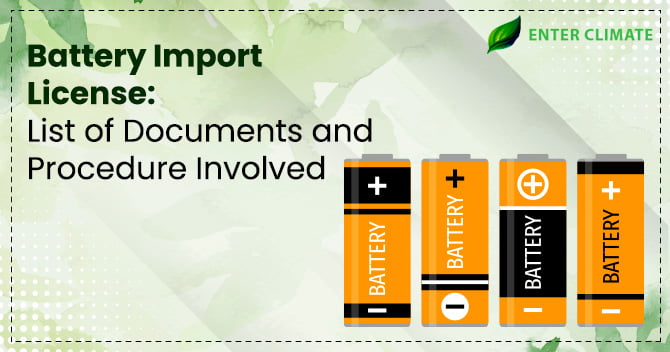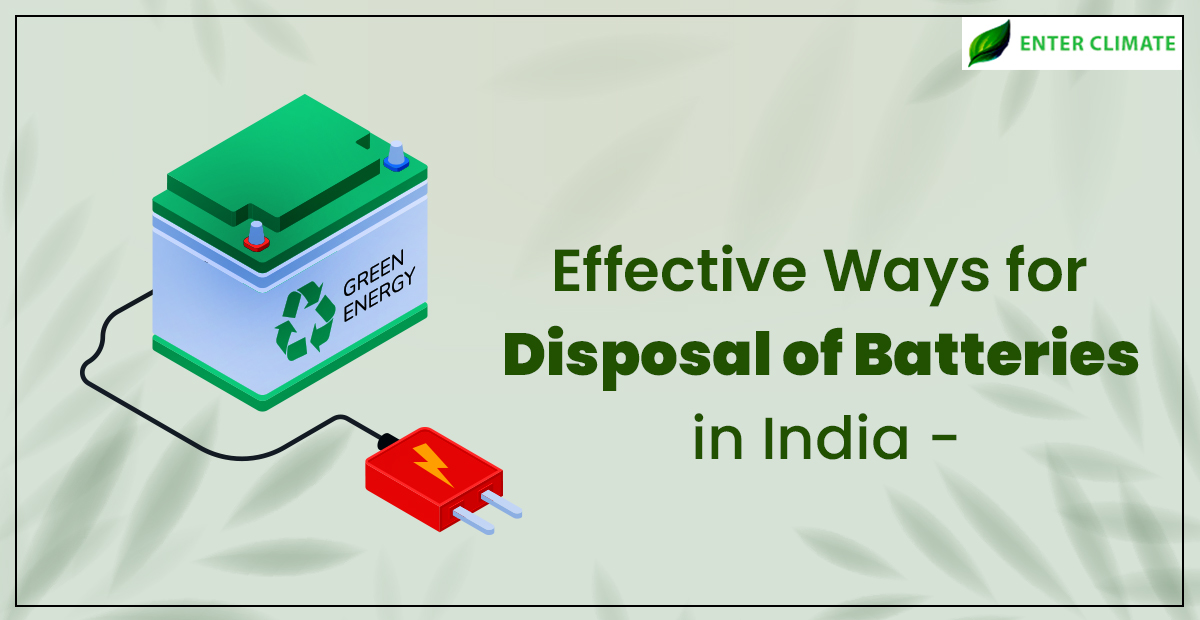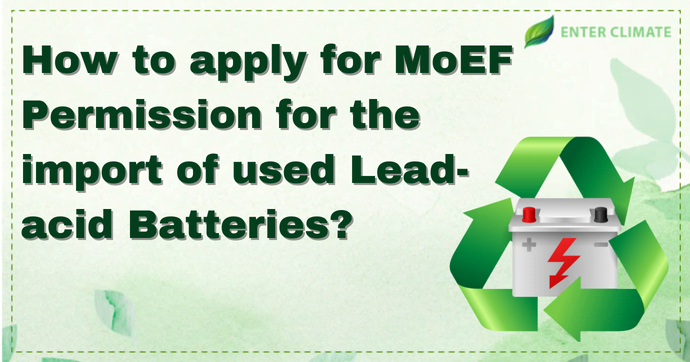Battery Import License: List of Documents and Procedure Involved
 27 Jul, 2022
27 Jul, 2022 
Commonly imported batteries are lithium batteries, Solar batteries and Lead Acid Batteries (LAB). Many locally manufactured and assembled products, including electronic devices, automobiles, and power backup devices, need batteries manufactured in different parts of the world. We have limited reserves of lead and far fewer lithium reserves. The manufacturers and assemblers in the country rely on imports, especially regarding lithium-Ion batteries. India is likely to witness a substantial growth in the demand for batteries given that several sectors, including electric and conventional vehicles, telecommunication, railways and defence, have shown forecast for growth after a brief period of slowdown during the covid pandemic. This is an opportunity for local manufacturers and importers to fulfill the demand by obtaining a Battery Import License. Registration with the CPCB and licence has been made mandatory for the import of new batteries, which requires the importer to be thorough with the procedure and submit the necessary documents needed for the import licence. In the following sections, we have tried to lay down the procedural and documentation requirements for importing major battery types into India.
Types of Batteries imported into India
Batteries are classified into two types based on rechargeability: primary (non-rechargeable) and secondary (rechargeable) batteries. The importers must obtain Battery Import License for new batteries by MoEF&CC and the CPCB.
Primary Batteries are single-use galvanic cells and are also known as disposable batteries. The typical example of imported batteries of this type includes zinc-carbon cells, alkaline zinc–manganese dioxide cells, and metal–air-depolarized batteries. India imports primary batteries from China, UAE, Singapore, the USA, and Canada. These five countries together, account for almost half of the primary battery imports.
Secondary Battery: Most of the import batteries in India are secondary batteries. Rechargeable lithium-ion and lead-acid batteries are the most common example of secondary batteries and are widely used as power sources in EEE devices, Electric Vehicles, automobiles and solar power plants.
Registration Process for Batteries Import Licence
- Registration for Lead-acid BatteryImport: Lead is increasingly used in inverters, UPS and similar energy storage devices as a raw material. Lead-acid and nickel-based chemistries used in solar project development are also being imported after IEC certification to meet the increased battery demand from the renewable energy sector. Applicants desiring a Lead-acid battery import license must apply for the registration either in offline format or through the online web portal of BRMS. The person in charge of the Hazardous and Wastes Management Division will issue the new registration to importers of lead-acid batteries. The procedure is as follows.
- Fill up the required Form and upload or attach all mentioned documents like PAN card, BIS certificate of the battery, IEC certificate etc.
- After submission of the online application, the applicant must submit physical copies of the application on their letterhead along with necessary documents
All complete applications will be processed within seven days from receipt of a physical copy. Documents that are needed to be enclosed with the physical application are
- Copy of Pan Card
- BIS certification of Battery
- Printouts of Form II and Form III taken out from the online application with stamp and signature of the importer
- Self-attested copy of Import-Export certificate.
Note: The importer registered earlier by MoEF&CC desirous to get registered with CPCB will have to apply in the same manner after surrendering the original registration certificate issued by MoEF&CC along with the application. Battery Import License will be issued only at the corporate or branch address specified on the IEC certificate.
Registration for Lithium-ion Battery import: The Importers of lithium-ion batteries can also register and get their licence to import with the Central Pollution Control board by submitting required documents to the CPCB. The document mentioned above for importing Lead Acid Batteries must also be submitted for Lithium-ion batteries.
Renewal of Registration of Battery Import License
- The applicant shall submit an application for renewal at the BRMS portal. Such application must be submitted 45 days before the expiry of validity. Application renewal will be processed online for issuance within seven days, subject to the condition that the importer had submitted half-yearly returns regularly at the BRMS portal and submitted the hard copies to the CPCB and SPCB. If returns were timely furnished to SPCB, the self-certified copies of such returns would have to be submitted. However, if there is any default on the applicant’s part related to return filing, the applicant may submit past returns after providing an undertaking on an affidavit. In such a case, the renewed license will be granted one-year validity.
Re-Activation of Cancelled or Suspended Battery Import License
In cases of violation of undertaking to ensure timely submission, the CPCB has the authority to suspend or cancel the registration within the validity period or refuse to renew the licence after its expiry and re-activation in such cases will need the approval of the Member Secretary. After being approved, a letter for re-activation of registration will be granted by the officer in charge of the HWM division[1].
Conclusion
India has around 2.5 % of the global lead reserves, which is not much when considering the demand for the lead for producing LAB locally. Similarly, we have been dependent on other countries for lithium-ion batteries because we don’t have sufficient reserves for lithium too. India imports lithium-ion batteries from Japan, China and South Korea and is among the largest importers of batteries in the world. The rise of imports in recent times has been significant too. India imported around 450 million lithium-ion batteries in 2019 and has tripled its import bill from 2016-2018. Therefore import of batteries that use these minerals is the logical solution, and obtaining a battery import licence timely by importers, manufacturers and battery dealers can decide their market share and profitability. Taking the help of experts that can make your battery import license experience with the CPCB easy and hassle-free, is just a phone call away.












